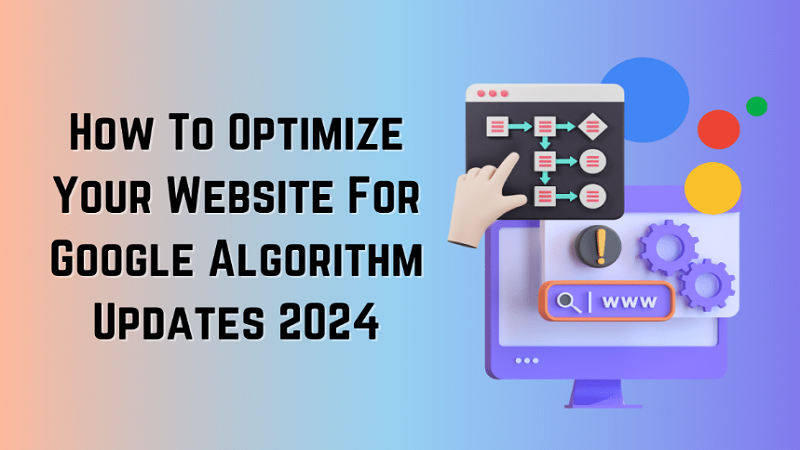Google’s algorithm updates can significantly impact your website’s search rankings. As Google continually refines its search engine to improve user experience and provide more relevant search results, staying ahead of these updates is essential for maintaining and improving your website’s visibility. In this guide, we will explore the latest Google algorithm update and the best optimization strategies to ensure your website remains competitive.
Understanding Google’s Latest Algorithm Update
Google’s latest algorithm update focuses on several key areas:
E-E-A-T (Experience, Expertise, Authoritativeness, Trustworthiness): Content quality is now more important than ever, with a strong emphasis on authoritative and trustworthy sources.
Helpful Content System: Google prioritizes content that provides real value to users, reducing the ranking of sites that publish unoriginal or low-quality content.
Page Experience & Core Web Vitals: Factors like page speed, mobile-friendliness, and user engagement impact rankings significantly.
AI & Search Intent Optimization: Google continues to refine its ability to understand search intent using AI and machine learning.
Strategies to Optimize Your Website for Google’s Latest Update
Improve Content Quality
High-quality, informative, and engaging content is crucial to ranking well in search results.
Focus on original and in-depth content that addresses user queries.
Implement E-E-A-T principles by showcasing expertise and credibility.
Use structured data (schema markup) to provide Google with more context about your content.
Enhance User Experience (UX)
A positive user experience leads to higher rankings and better engagement.
Optimize Core Web Vitals (Largest Contentful Paint, First Input Delay, Cumulative Layout Shift).
Ensure your website is mobile-friendly and responsive.
Improve site navigation and internal linking for better user flow.
Optimize for Search Intent
Google prioritizes pages that best match user intent.
Conduct keyword research to align content with user search queries.
Diversify content types (blog posts, videos, infographics, FAQs) to cater to different search intents.
Optimize meta titles and descriptions to accurately represent page content.
Focus on Technical SEO
Technical SEO ensures search engines can crawl and index your site effectively.
Implement fast-loading pages by optimizing images and leveraging caching techniques.
Use an SEO-friendly URL structure and create an XML sitemap.
Fix broken links and ensure proper 301 redirects.
Strengthen Your Backlink Profile
Backlinks remain a critical ranking factor.
Earn high-quality backlinks from authoritative sites in your industry.
Conduct competitor analysis to find link-building opportunities.
Disavow toxic links that could harm your rankings.
Optimize for Voice Search and AI Search
With the rise of AI-powered search, optimizing for voice search is essential.
Use natural language processing (NLP) techniques to align with conversational queries.
Create FAQ-style content with direct, concise answers.
Target long-tail keywords for improved ranking in voice search results.
Leverage AI & Automation
Utilize AI-driven SEO tools for keyword research and content optimization.
Implement automated tracking to monitor ranking fluctuations and adapt your strategy.
Use chatbots and AI-powered personalization to enhance user engagement.
Monitoring and Adapting to Future Updates
Algorithm changes are ongoing, so staying updated and flexible is crucial.
Use Google Search Console and Google Analytics to track performance metrics.
Follow Google’s official updates and SEO industry blogs.
Continuously tweak and test new strategies to ensure sustainable success.
Conclusion
Optimizing for Google’s latest algorithm update requires a strategic approach, focusing on content quality, technical SEO, user experience, and AI-driven techniques. By implementing these best practices, your website can maintain strong rankings and adapt effectively to future changes in search algorithms.
More Information


